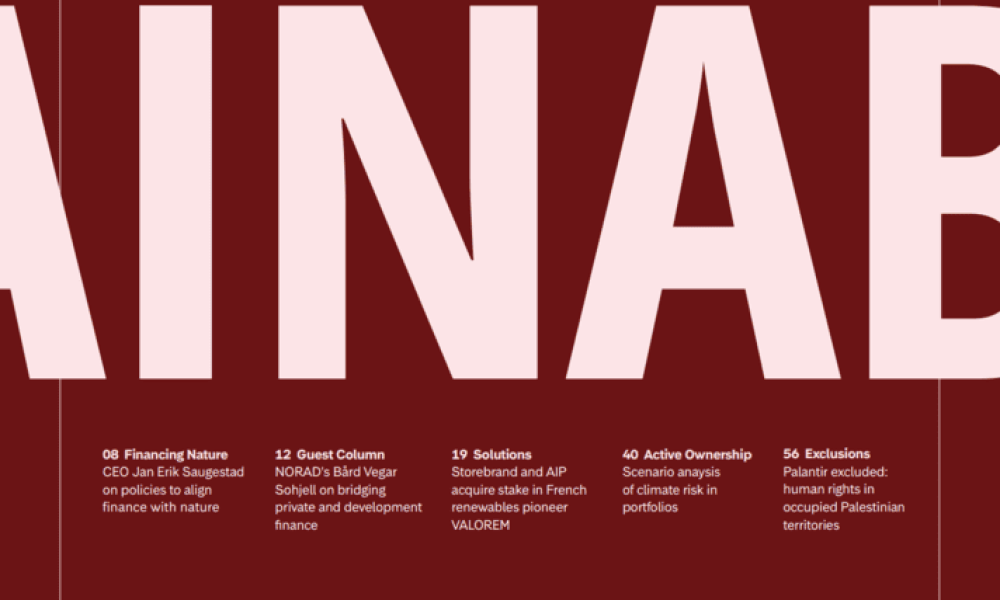Looking back at the last quarter, the theme of nature and climate has been high on the agenda in the lead-up to COP16 and the launching of Storebrand's integrated TCFD-TNFD report.
In our special section on nature, we are pleased to welcome a guest opinion by Bård Vegard Solhjell, the former Minister of Environment for Norway, now Director General of Norad. Solhjell offers Norad’s perspective on how development and private finance can bridge the gap needed for the world to meet the global Sustainable Development Goals (SDGs). The section also features insights from our CEO Jan Erik Saugestad, and our Head of Climate and Environment Emine Isciel, and an update on the work of the Finance for Biodiversity Foundation (Ffb) in which we have played a leading role in voicing the expectations of the finance sector, ahead of COP16.
To improve the factual basis for our active ownership, SAM has developed three analyses focused on climate and nature, to be integrated into our TCFD-TNFD report, which will be published in conjunction with COP16. The first offers insight into how different climate scenarios may impact our investment portfolios. The second maps the impact of our investments on extractive industries in forests. The last, demonstrates how geospatial asset-location data can be used to understand water risks. These three analyses provide a more granular view of our investments and help us to prioritize active ownership more effectively.
We also have important updates on our work on human rights, one of our focus areas of engagement, and in particular on digital rights and the state of play of ethical AI, as well as reflections on the implementation of human rights due diligence by companies in Norway two years after the enactment of the Norwegian human rights due diligence law (Åpenhetsloven).
We end the edition with updates on our engagement and voting activities, as well as our decision to exclude Palantir, a major technology company, from our investment universe, due to the risk of its involvement in human rights risks in the occupied Palestinian territories (oPt).







